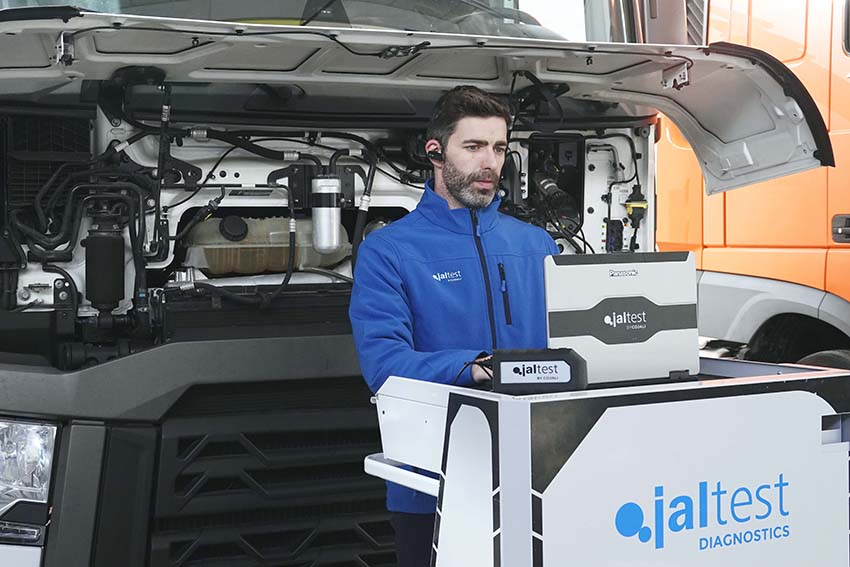Cojali is a Spanish manufacturer of components, advanced diagnostic equipment, solutions of predictive maintenance and remote diagnostic for commercial vehicle, agricultural and special equipment and vessels.
Easy Engineering: What do your customers look after when buying products or services?
COJALI: Regarding Cojali Parts, customers normally search for technical support. A lot of our product references include installation guides and technical documents that help our customers to install our products properly. It is a very simple process, since they can access this information by scanning a QR code that is on the product box itself, for free.
In the case of Jaltest Diagnostics, the needs are mostly regarding technical support and training. Cojali covers all the technician needs, offering online technical support and a comprehensive range of training courses to enhance the knowledge and skills of the user. Besides, we provide training throughout the world with the help of local distributors, helping the users of Jaltest Diagnostics to become more professional and offer the best possible service.
E.E: What are the main needs of the customers?
COJALI: As I said, support and training.
E.E: How important are the after-sales services?
COJALI: Very important indeed, that is why Cojali goes beyond the product itself, offering a very comprehensive after-purchase experience through installation guides, in the case of Cojali Parts components, and technical support when it comes to Jaltest diagnostics device.
E.E: What after-sales services do you offer?
COJALI: In the case of Cojali Parts, i-Parts Assist. It is the platform to access the installation guides and technical documents of our products.
For Jaltest Diagnostics, we offer our technical assistance service and a wide range of training courses embodied in our division Jaltest University.
Besides, we also offer courses abroad and at our own facilities, where we count on qualified trainers and vehicles to carry out actual practices.
E.E: What kind of support do you offer your customers?
COJALI:
- Cojali parts -> i-Parts Assist.
- Jaltest Diagnostics -> Online support and training.

E.E: How do you promote your after-sales services?
COJALI: We have different promotion channels such as:
youtube.com/c/JaltestMultibrandDiagnostics
Also, through our distributors in more than 115 countries all over the world.
Another channel very important for Cojali is the attendance to international fairs of the sector. Cojali is present in those most important at international level.
E.E: What impact has product innovation on your customers?
COJALI: Precisely, one of the fundamental pillars for Cojali is innovation. We are aware of the need of offering cutting-edge products in a sector which is constantly evolving. Vehicles are increasingly complex, with more difficult failures, also requiring from more trained and specialised professionals, as well as from advanced and specific tools in order to face the daily problems of the workshop.
For that reason, in Cojali Parts we have a catalogue of components with more than 40,000 references, and we include new products each month.
On the other side, our Jaltest diagnostics tool has 3 annual software updates, in which we include new models, brands and systems to be diagnosed, ensuring that the technician will be able to face any failure arriving to their workshop in the most efficient way.

E.E: What industries do you think will grow in 2022?
COJALI: This is not new, but probably those that are capable of adapting to the new market needs, which are electrification and environment sustainability.
E.E: What solutions do you bring for these industries?
COJALI: In the component range, developing new references for Euro 6 applications, which is the current anti-pollution standard. In Jaltest Diagnostics, by developing coverage for Euro 6 vehicles and also for vehicles that operate with gas and electricity.
Our Telematics hardware and software division also offers a very efficient solution for the management of any vehicle fleet, enabling fleets to carry out their tasks efficiently and saving costs, therefore contributing at the same time to respecting the environment.

